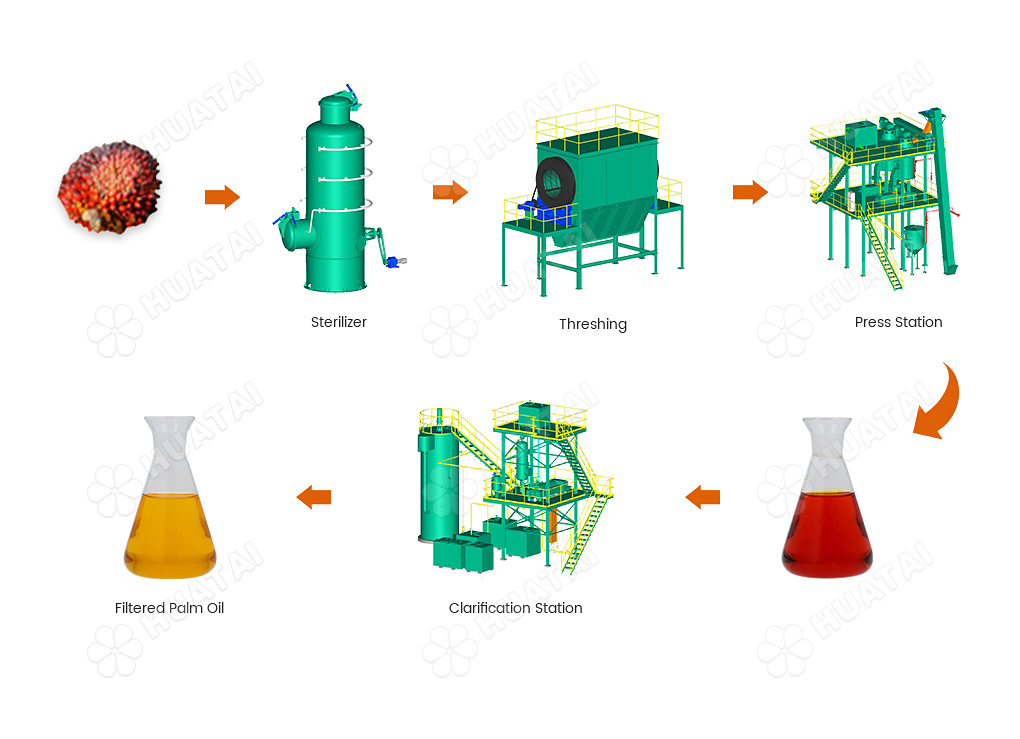China leading palm oil mill plant machine manufacturer and supplier
Email:info01@cnoilmachine.com
Strictly speaking, palm oil is not squeezed, and all produced palm oil must be refined to meet the standards. Crude oil production: Palm oil is mainly found in palm pulp. Therefore, when squeezing palm oil, the pulp is first crushed, and the palm oil will naturally float up, and then centrifuged. This process is not the same concept as the traditional squeezing. After peeling the pulp, what is left is the palm kernel. There is also oil in the kernel. This oil is mainly squeezed, but this oil is called palm kernel oil, not palm oil. After the oil is separated, there is actually a high proportion of oil in the pomace. You can extract part of it again by squeezing (pressing cannot completely extract it, there is about 10-20% residual), and then extract it by leaching (more than 99.5% of residual oil can be extracted). Of course, you can also directly use the leaching method to extract the oil in the pomace. The oil squeezed in this step can barely be said to be squeezed palm oil. The key point is the following: the palm oil extracted in the front should be called crude oil. Unless the raw materials are very good (fresh, not moldy, and stored in good conditions, etc., and the processing is relatively thorough), otherwise it will be The oil likely exceeds the permitted harmful indicators, requiring refining. For example, if the acid value exceeds the permitted limit, chemical deacidification is required. The resulting oil is refined palm oil.

The concept of "finished fractionated palm olein" is not found in the national standard. Only the enterprise standard defines it as "finished fractionated palm olein": palm oil is processed and blended with or without the addition of tertiary butylhydroquinone, resulting in finished fractionated palm olein. Clearly, finished fractionated palm olein is refined palm oil. Therefore, "finished fractionated palm olein" and "refined palm oil" are different processes, making comparison impossible, and neither can be considered superior. "Finished fractionated palm olein" can also be called "refined palm oil" or a type of refined palm oil. Regarding trans fatty acids, the refining of vegetable oils produces very little trans fatty acids, and even less with current technological advancements. I think you may have confused the concepts of refining and hydrogenation. The hydrogenation process of vegetable oil does easily produce trans fatty acids, but the technology level has improved a lot now, and the amount produced is already very low, so there is no need to worry blindly.
Please let us know your required specific needs. We will provide the best possible palm oil processing plant solution.
If you are interested in our palm oil machine and palm oil mill plant. You can contact us through online consultation, filling out the form below, email, phone, etc. Our engineers will customize the most suitable plan and best price for you.